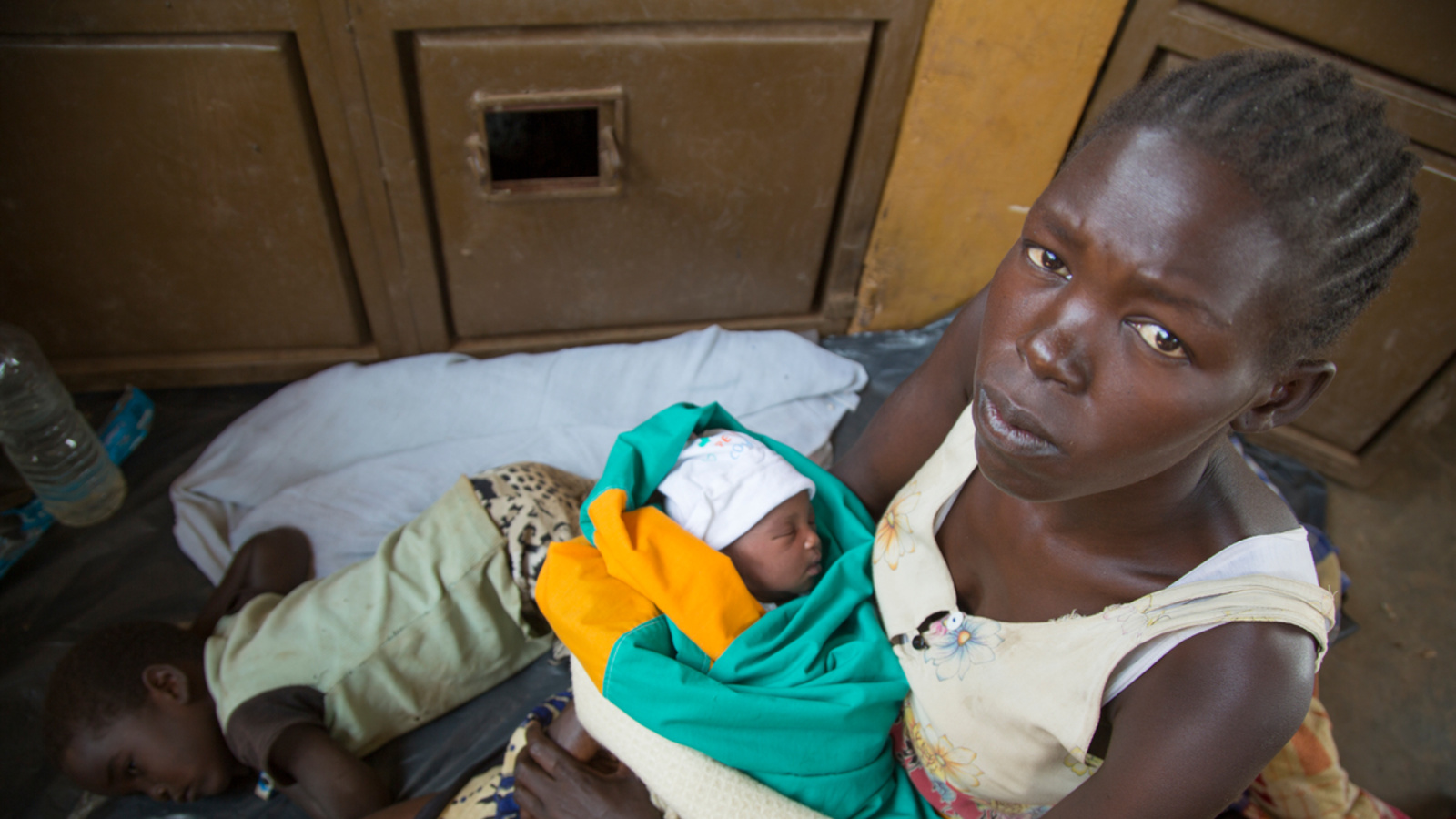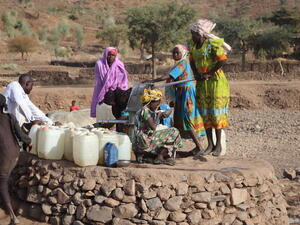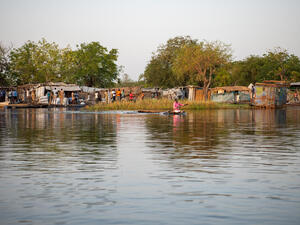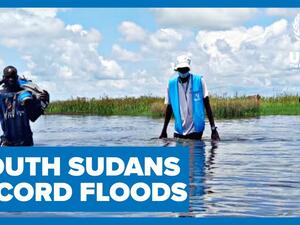South Sudan's recent violence splits hundreds of families apart
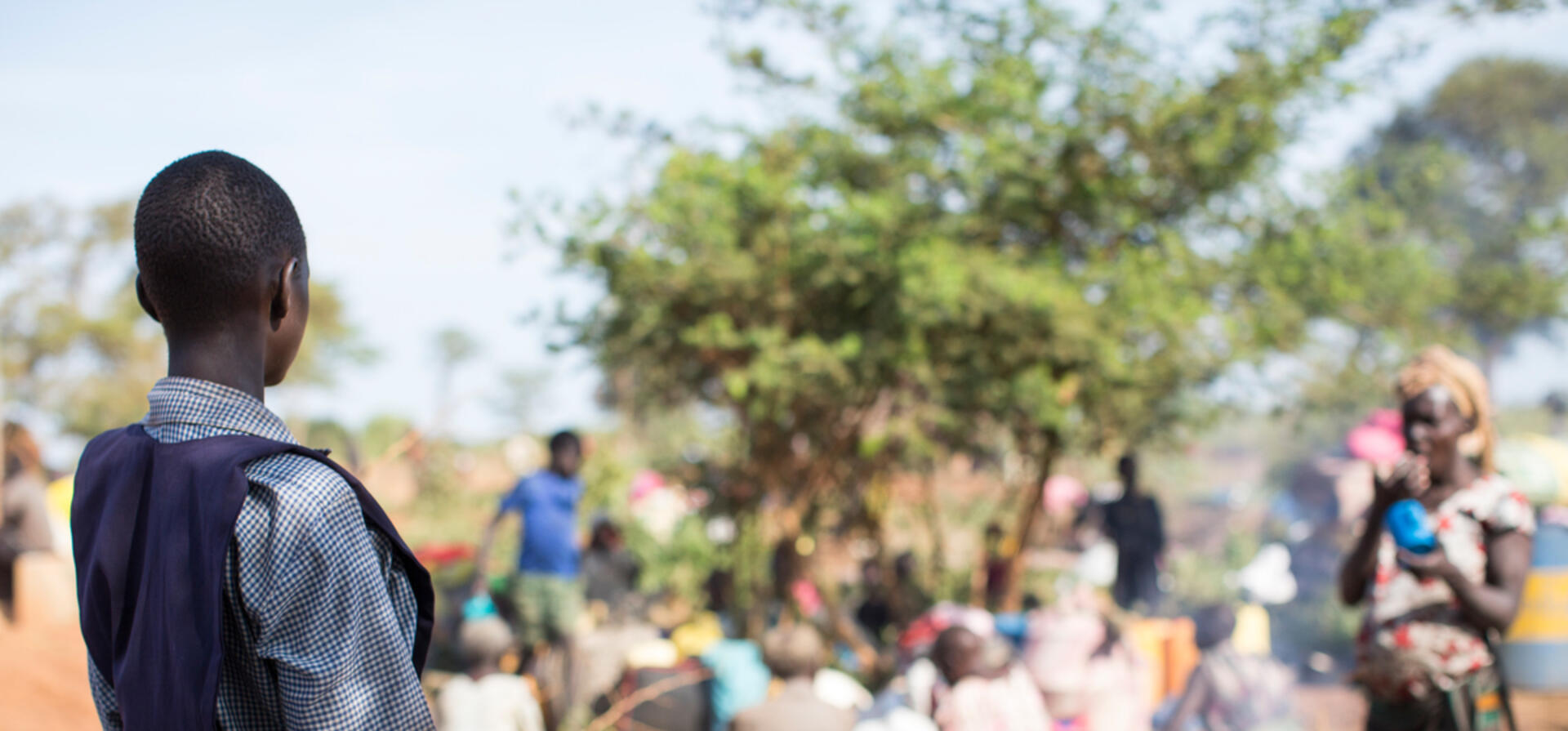
South Sudan's recent violence splits hundreds of families apart
Sandra fixes her gaze on a family sitting beneath a makeshift shelter. Tears stream down her dusty face, leaving tracks on her cheeks.
Thousands of people lie around on the ground around her, exhausted. Men are busy making a shelter for the night. Mothers and young girls hurry to ready porridge for lunch. Sandra is alone in a sea uncertainty and intense emotion.“I have no news about my parents and my siblings,” she sobs. “I prefer not to think about them. It makes me sad. I fear that I may not see them ever again.”
Sandra, 14, fled to Uganda on April 3 after the South Sudanese army launched a deadly attack on Pajok town, forcing tens of thousands of people to leave their homes and hide in the bush. More than 7,000 crossed to Uganda at Ngomoromo in the course of a week.
Among them are 600 children, separated from their parents. They made the perilous journey alone. Some were girls who were far away from home fetching water or collecting firewood when the attack happened; others are teenagers selling fruit and vegetables at the local market; or students like Sandra.
“When the gunshot began, I was in school."
“When the gunshot began, I was in school. We were learning English vocabulary. I was so afraid. I never heard that sound before. The teacher shouted to get out and ran. My classmates and I were in the front. He was the last one to leave the classroom, making sure that no one was left behind.”
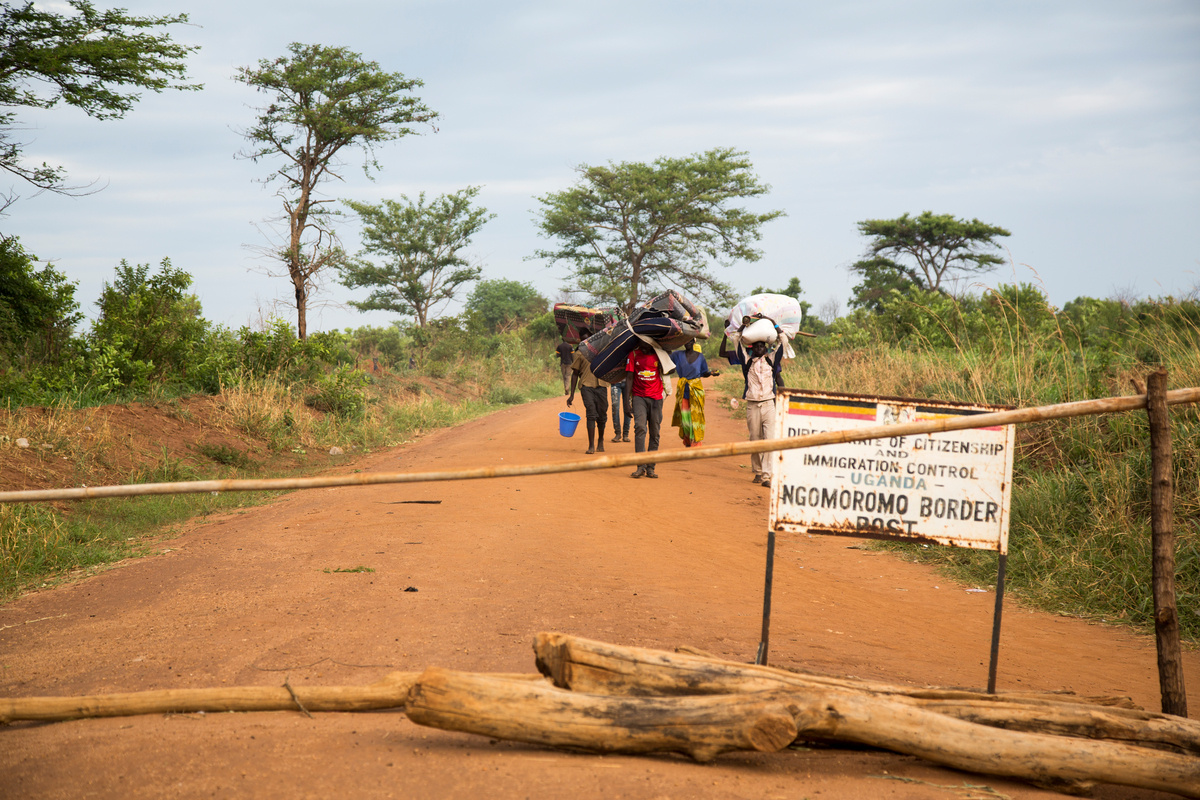
South Sudanese refugees walk towards the Ugandan border crossing at Ngomoromo carrying their belongings. They are fleeing the town of Pajok after it was attacked by armed groups.
Sandra and her fellow students arrived in Ngomoromo two days after a long walk through the bush without food and water. She is still wearing the uniform that she had put on to go to school the day of the attack. “When we reached this place, we found many people sleeping on the ground. Some were sitting on the sides of the road. But they were all strangers to me.”
Since the onset of the emergency, UNHCR, the UN Refugee Agency has been running a ‘protection desk’ at the border to identify and assist the most needy: survivors of sexual violence, people with disabilities, the elderly, single mothers, and separated children and unaccompanied minors like Sandra. Working closely with refugee representatives, the UNHCR team on the ground in Ngomoromo was able to reunite some of these children with their parents and arrange temporary foster care for the rest.
Sandra was briefly reunited with her Aunt.
“I wanted Auntie to stay with me, but she went back to South Sudan the following day to look for my parents,” says Sandra. “I am alone again.”
"I don’t know where my husband is. Who is going to take care of my children?"
Christine Achan, 26, sits on a dusty straw mat under the shade of an old concrete waiting station, cradling her newborn in her arms. But her face hardly reflects the joy of bringing a new life into the world. “I thank God that the baby is healthy, but I don’t feel good. I don’t know where my husband is. Who is going to take care of my children? I don’t feel good,” she says with a sense of guilty.
Christine was in her last week of pregnancy when the violence split Pajok, where she used to be a teacher.
“I was at home getting ready to go to school when I heard the gunshots. Everything happened suddenly. I run to the bush with my two children and my grandmother. We walked for three days without food and water. I thought I would deliver on the way. I had pain in my stomach. I feared I would lose my baby,” she says.
Christine gave birth to Anwech Varsity two days after arriving in Uganda. “In the midst of this chaos, I found my sister Beatrice. At least I have someone to share my worries with. My children keep asking me about their father. I told them that he is alive and he will soon join us. But I have a bad feeling deep inside.”
Since the outbreak of the conflict in South Sudan in 2013, families have been torn apart. Violence, hunger and indiscriminate attacks against civilian populations continue to prompt mass exodus, putting the number of internally displaced people and refugees at respectively 1.9 million and 1.7 million.
“Women and children bear the brunt of this senseless war.”
Uganda currently hosts more than 834,000 South Sudanese refugees, with over 194,000 new arrivals in 2017 alone. Eighty-six percent are women and children, including some 21,000 minors without parents or a legal guardian.
“Women and children bear the brunt of this senseless war,” says Bornwell Katande, UNHCR’s Representative in Uganda. “While it is imperative to pursue a political resolution to the conflict, in countries of asylum like Uganda it is vital to provide special support to women and children who have experienced violence, trauma and abuse. But the funding situation is dire.”
UNHCR and partners need more than US$558 million to respond to the needs of South Sudanese refugees in Uganda, including food, water, shelter and livelihoods.
“Four months into 2017, we have received less than 10 percent of the funding. The international community should show share more responsibility towards the world’s fastest growing refugee crisis. What is at stake here is the future of an entire generation of children, who have lost one or both parents, who are unable to go to school or do the ordinary things all children deserve.”


